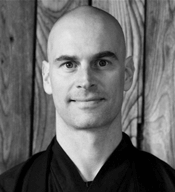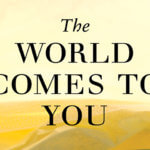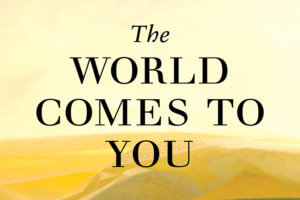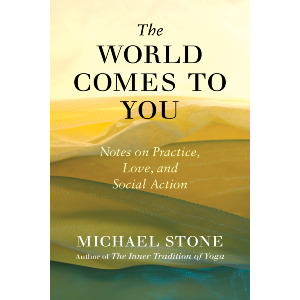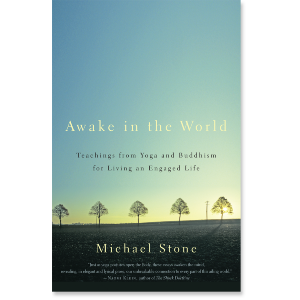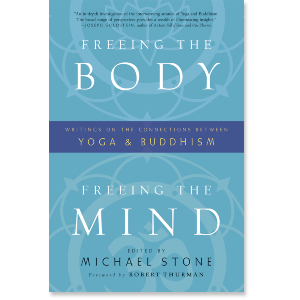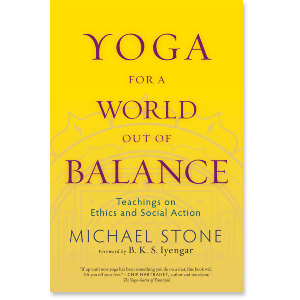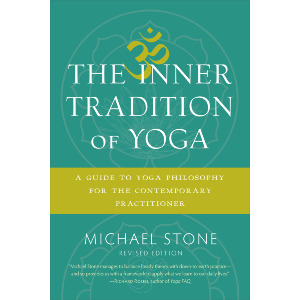Excerpt from The World Comes to You
Love 1
By love, I don’t mean just between people—I mean a love for invention, architecture, neighborhoods, water, whales, soil, technology, farmers, etc. I’m talking about a love that doesn’t leave anything out. When we look deeply at the physical world, all we find are relationships. So we need to take care of those relationships because that’s what you are. Did you think you were something else?
How do we cultivate a life where we don’t make ourselves separate from things? In doing so, we stop seeing them as “things.” We stop turning ourselves into things, and others into things.
We have to go to a place deep within. Otherwise you end up running around. Which is really just trying to get other people to love you. But trying to get other people to love you is actually the biggest obstacle to itself because it blocks other people from really being allowed to see you—because you don’t know who you are since you’re running around.
All of this is a way of talking about love.
Love 2
In relationship, we can’t help but relate the other person to images we have of how things should be. We want them to meet our unconscious images of what a relationship looks like, of mutual duties and responsibilities, of entrance and exit lines. But nobody can ever fit that image—it’s impossible.
Over time a person starts to break through the image as they move toward us, and we have to enlarge our view of the other, and that’s when relationship begins to happen. But what tends to occur is that we stick to our assumptions, we tighten up around our image of them, and they’re also working with their image of us, so there are these two image makers creating images of each other, trying to do whatever they can to hold on to the image of the person. And we depend on each other’s image making. We like the image they offer of ourselves, and they like the image we offer. And we’re not fully ourselves.
To really be able to appreciate the differences, rather the similarities, between ourselves and others means a plurality of stories and images can exist simultaneously. Then we can allow our definitions of ourselves to be fluid and flexible and responsive and creative. Then it’s possible to be two together and not to be one. What we call one is really the difference between two people, not their summation. Miles Davis and Chet Baker both play trumpet and there’s nothing interesting about that fact. What’s interesting is that Miles Davis and Chet Baker play so differently within the same genre, with the same instrument, in the same cities and halls and theaters, with the same audiences sometimes, but one is Miles Davis and one is Chet Baker. Why can’t we do our relationships like this?
Where we really celebrate each other’s differences, in a way that’s not just political affect or a good new-age feeling, is via a commitment to freedom. I start to feel free when I work to guarantee a space where you can be free. It can be hard to relate to people who are in their eccentric selves because they don’t operate within an idiom that we’ve created for them, they don’t fit, and in their not-fitting there’s samadhi. The not-fitting is oneness, it is intimacy, and the opposite scenario, where we’re just relating inside this small world of what’s the same as us, is merger, is codependence. It’s ultimately dangerous because it shrinks our world and our hearts and our bodies.
We have a child who is autistic. His therapist, whose focus is fostering dynamic relationship building, uses a technique to harness attention, to encourage our son to visually reference us, and him. The technique involves doing something unexpected. The first time the therapist visited our home and was introducing us to the approach he uses, he stopped mid-stair and fell slowly into the wall. His body went rigid, his eyes were still. Carina and I thought for a moment that he’d had a stroke. We nearly panicked! He explained after that what he’d done was to (dramatically) force us to check in, to reference the situation. He was demonstrating a way of interrupting our expectations to harness our awareness. He got our attention by doing something out of the ordinary. The space that this opens is the possibility for anything, or anyone, to exist.
Love 3
The problem with being dissatisfied is not that you’re dissatisfied; the problem is everything that you add onto it. I like to call this dukkha-dukkha, or suffering about suffering. In other words, the problem with a sense of lack isn’t that you feel that you’re missing something, it’s that you’re trying to fill it. Because the self is actually an impermanent empty phenomenon that is constructed moment to moment, there is always going to be the experience of lack, because it’s not built on anything. So when we’re clinging as a self, we’re always going to experience this sense of being dissatisfied. Sometimes we feel this and sometimes we don’t, but it is built into human life. Instead of being freaked out when it shows up, we could instead say hello.
Your life is so precious because it’s so fragile. Like animals whose lives are dependent on so many factors in the ecosystem, we too are dependent on so many contingencies. We forget this because we just turn on a tap for water; if survival is easy and accessible, we can forget that our life is so fragile. And it’s changing. It’s changing all the time and there isn’t anything that flows with change except for love. Love is the fluid quality that can work with impermanence. Love is water.
Put another way, if you were a good Buddhist academic, you might see love as the integration of emptiness and compassion. Whatever you think exists never exists the way you think it does. On the other hand, this generates a sense of openness toward experience because you don’t know what it is—perhaps this is the key in relationship: remembering that you don’t know who the other person is. They hardly know themselves! They’re trying to figure out who they are too. Maybe the best thing we can do in our relationships so that love shows up is to not depend on other people to be who we think they are. (Even though this is impossible.)
Love 4
We try so hard to feel pleasure and minimize pain. And if you hold on to something too tightly, love has no room to breathe. I learn this every day.
Grasping is the enemy of intimacy. Letting go of grasping is another way of talking about love. Love is what arises in the absence of grasping. I think of this as an embodied love. I cannot define what love is, but I can use the term to describe awakening. Awakening is the practice of loving something so deeply that it inspires action without grasping. First, though, we need to stop and get calm. Without a calm inner body, love is frenetic, sticking to things, personalizing, holding on for dear life.
Can you fall in love without clinging? I don’t know. But I think a deeper experience of love happens in relationship when there is an absence of clinging. Sometimes we confuse the clinging with the love. But we experience a deeper kind of love when it comes from the background rather than when we try to shape it in the foreground.
It starts in the morning when I sit still. I explore feeling the breath without sculpting it in any way. I hope I can be a father and a husband in the same way. To be with others allowing them room to be who and what they are, to change, to grow or cut their hair, to gain or walk away from a job, to express their frustrations or offer something I didn’t know I needed. People surprise us. People are so unexpected. You can never know someone fully. You can never fully know yourself.
To live in accordance with how things really are means carving a life out of what is changing, what is unreliable, what will fail us. When Carina and I met, it took three months for me to hold her hand in public. I was so dismantled by my separation some years earlier that my arms and hands didn’t yet know how to embrace again, especially on the sidewalk, in the light of day, where things seem more real than at home in private. I wanted my relationship to stay private. I’d say this to Carina and the look on her face was always a mixture of sad and patient. She knew there was deep care there and knew it would take time for me to find confidence again. Her patience made room for hand holding, but it took a while.
Whatever mess you find yourself in is just another site of practice. Nothing about this is average. Look, the blooming lotus flower. Look, the hardened heart. Look, the pain in my chest when I inhale into that old image of my lover dying, my father getting ill, the job I didn’t get. Practice says yes, I can be intimate with that.
Love ∞
We are all going to die. Or, knowing one another is very precious.
At the moment of death the only thing that really matters is the condition of your heart.
Our lives are so short and that’s the amazing thing about the world. It doesn’t last. Our bodies are wondrous because they’re vulnerable. Our relationships are profound and difficult and joyous and tragic because we’re vulnerable and our relationships don’t last
Share
Related Books
$16.95 - Paperback
$17.95 - Paperback
Freeing the Body, Freeing the Mind
$27.95 - Paperback
Yoga for a World Out of Balance
$22.95 - Paperback
$18.95 - Paperback
